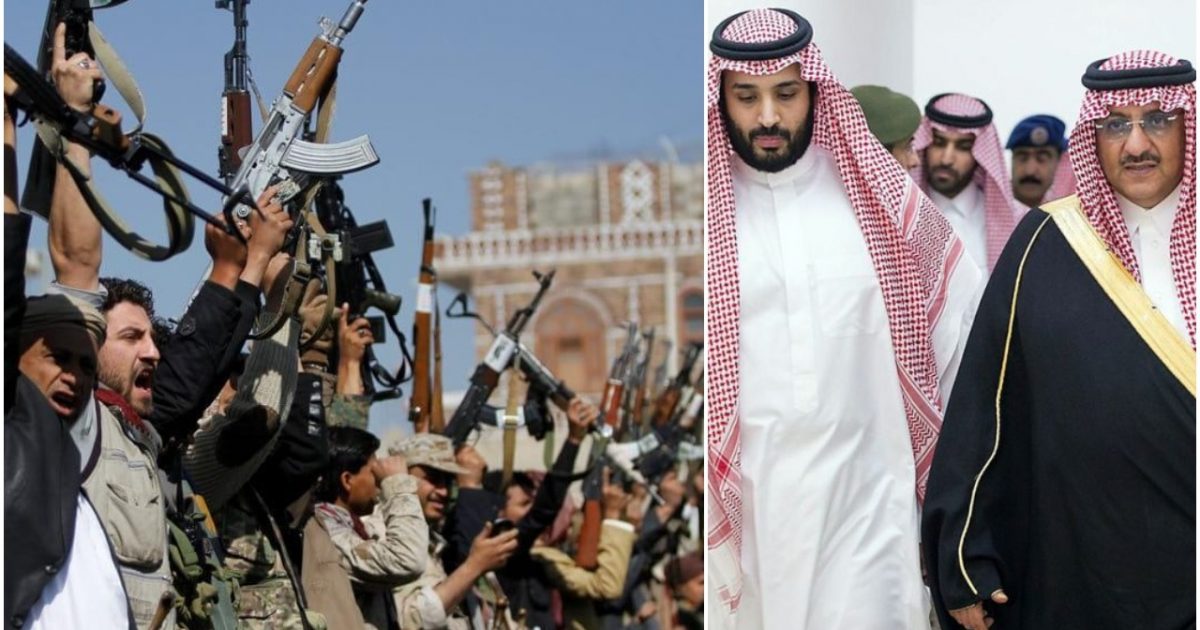
Over a year ago, the Stockholm Agreement was signed between the fledgling Yemeni government and the Houthi rebels, a pact that peace advocates hoped would bring an end to the brutal civil war in Yemen.
Unfortunately, the UN-backed treaty broke down as both sides accused the others of undermining the specified terms, and it ultimately did not stop humanitarian atrocities from occurring in the nation. Saudi Arabia backs the Yemeni government while Iran backs the Houthis, and a proxy war between the Islamic rivals has exacerbated turmoil in the ravaged country.
New talks are underway between the Houthis and Saudis over the past two months, following a resounding military victory by the Houthis. These talks have occurred largely under the cover of darkness, but may signal that the civil war is ready to come to an end.
These talks have already been fruitful, as hundreds of prisoners have been released by both sides. The Saudis have admitted that an “open channel” has developed between them and the Houthis. Oman, a neighboring country, has served as mediator for the talks.
Following the success of the attack by the Houthis on the world’s largest crude oil facility in Saudi Arabia, the Saudis have come to the negotiating table. They now respect the strength of their upstart foe, as the Houthis have steadily gained power in Yemen throughout the civil war.
The Houthis’ drone attack on the oil facility reportedly halted half of the nation’s production of crude. It was one of many successful attacks launched against the Saudis throughout the year. Since the peace talks have started, the Houthis have halted their attacks against the Saudi aggressors.
According to Middle East Eye, the current talks are underway between the Houthis and the Saudis. The Yemeni government has been shut out of discussions completely.
“The Stockholm agreement was between the Houthis and Hadi’s government, but now the negotiations are between the Houthis and Saudi Arabia,” a Houthi source said to MEE.
“There have been talks between Saudi Arabia and AnsarAllah [the Houthis] in Oman over opening Sanaa airport and lifting the blockade on Yemen,” the source added. “Hadi’s government, however, was not involved in the talks because Saudi Arabia looks out for its own interests and does not care about mercenaries.”
Sympathizers with the Yemeni government believe that the talks benefit the Houthis, and they likely indicate that the Saudis are getting ready to abandon their plans to reinstate the puppet regime of deposed former Yemeni President Abd Rabbu Mansour Hadi.
“During the last month, the Saudi-led air strikes stopped targeting the Houthis, while the Houthis are still targeting civilians in the city,” said Abdulghani Rageh, a pro-Hadi military leader, to MEE.
“The battles calmed down on the Saudi borders but not on local fronts… The Houthis are the winners of the talks,” he said. “I hope that Hadi and the government reject any secret agreement signed between Saudi Arabia and the Houthis. Any agreement should go through the Yemeni government.”
If Saudis do abdicate, the U.S. will no longer be responsible for the carnage caused in Yemen. The Saudis have used U.S. bombs to commit war crimes in Yemen for at least four years. The people of Yemen may finally be left to their own devices, unless the military-industrial complex is able to derail the progress toward peace in the devastated nation.



